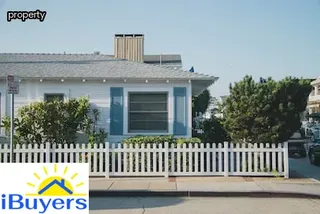When selling a house, there are several essential factors to consider. Firstly, the seller should determine their asking price.
This should be done in consultation with an experienced real estate agent who is familiar with the local market conditions and can provide valuable advice about pricing strategies. Secondly, it is important to factor in all associated costs of selling a home such as legal fees, land transfer taxes and marketing expenses.
Thirdly, the seller should decide which type of sale strategy they will use such as open houses, private showings or online listings. Finally, the seller must also consider how long it will take to sell their property and if they need to secure temporary accommodation while waiting for the sale to complete.
All these considerations are key elements of understanding the true cost of selling a house so that sellers can make informed decisions and get the best possible outcome from their sale.

When selling a home, it is important to understand the full scope of costs associated with the process. Analyzing the costs of selling a house can be an intimidating endeavor for any home seller, but it is essential to ensure that the sale is successful.
Home sellers must consider both fixed and variable expenses, such as repairs and upgrades, closing costs, real estate agent commissions, marketing fees, taxes, and moving expenses. While some of these costs may be unavoidable, others may be able to be reduced or eliminated through careful budgeting and negotiation with contractors or agents.
It is also wise to research local market trends in order to anticipate any additional costs that may arise throughout the sales process. Taking all of these factors into account early on can help home sellers avoid unexpected financial losses during their sale and make sure they get the best return on their investment.
When it comes to selling a home, there are a variety of fees that must be taken into consideration. Home sellers should be aware of all the expenses involved in the process and plan accordingly.
These costs can range from real estate taxes and agent commissions to closing costs and home inspection fees. Additionally, depending on the state, sellers may have to pay sales tax on any profit made from the sale as well as capital gains tax if applicable.
Furthermore, some states may require additional paperwork such as disclosure forms that need to be filled out and can come with additional fees. It is important for home sellers to budget for these costs ahead of time so they know exactly what financial obligations need to be met before their sale is complete.

It is essential for home sellers to understand the true cost of selling a house before listing their property. The costs associated with selling a house vary depending on factors such as location, market conditions, and the seller’s particular circumstances.
A key part of this equation is comparing seller’s costs to buyer’s costs. Understanding both sides of the equation can help you budget more accurately and make more informed decisions when it comes to the sale price of your home.
Seller’s costs typically include any commissions or fees paid to agents and brokers, closing costs, taxes associated with the sale, repair and maintenance expenses, mortgage payoff amount (if applicable), homeowner association fees (if applicable), title insurance cost, marketing expenses, and legal fees. Buyer’s costs will depend on their individual financial situation but generally include loan origination fees, appraisal fee, home inspection fee, title search fee, survey fee (if required by lender) transfer tax (if applicable), points paid to reduce interest rate (if applicable), private mortgage insurance (if applicable), and prepaid items such as homeowner’s insurance and escrow deposits for taxes and insurance.
Knowing both sides of the equation can help you set an appropriate sale price that works for both parties involved.
When selling a home, there are a variety of financial costs that come with the territory. Homeowners need to understand their options when it comes to optional expenses so they can make informed decisions and budget accordingly.
These may include things like staging the home, hiring a professional photographer and/or videographer to showcase the property, or paying for an inspection before listing. Advertising and marketing costs can also add up quickly, such as online listings, print advertising in newspapers or real estate magazines, and hosting open houses.
Additionally, there may be legal fees involved depending on the transaction type and local regulations. Lastly, homeowners should not forget about closing costs associated with the sale including title insurance fees, transfer taxes, and commissions for realtors or brokers.
It is important to remember that these costs can vary greatly from one state to another so doing some research ahead of time is key for making sure you are financially prepared for this major life event.

Selling a house can be a costly endeavor, but there are ways to minimize expenses. Knowing the true cost of selling a home is essential for any home seller so they can make informed decisions.
One way to save money when selling is to declutter and stage the property yourself, as opposed to hiring professional help. Additionally, use free online marketing tools like social media and your own website to promote your listing instead of paying for advertising.
Another way to reduce costs is to negotiate with agents or brokers you’re working with on commissions, fees, or other services that may incur additional costs. Furthermore, consider pricing your home competitively in order to attract more buyers which may lead to a quicker sale at a higher price point.
Lastly, if necessary, do some of the repairs yourself instead of hiring contractors who may charge more than expected. Taking these steps will help ensure you get the most out of your home sale while minimizing expenses along the way.
The average cost of selling a house varies greatly depending on the type of property, location, and market conditions. Generally speaking, homeowners can expect to pay between 5-10% of their home's sale price in closing costs.
This includes real estate commissions, title insurance fees, transfer taxes, escrow fees, and loan origination costs. Homeowners should also budget for repairs or upgrades that may be needed to make the property more attractive to buyers, as well as any additional marketing expenses such as staging costs or professional photography.
Extra expenses like these can add up quickly so it is important for sellers to do their research and plan ahead when selling their home.

When selling a home, closing costs are an essential factor to consider. Closing costs can vary depending on the local market, but they are typically between two and five percent of the final sale price.
The most significant closing cost is generally the real estate agent's commission, which is often determined as a percentage of the sale price. Other common closing costs include title fees, transfer taxes, and any prepaid items that may be part of the deal such as homeowners association dues or property taxes.
Additionally, it is important to remember any outstanding mortgage payments or liens that will need to be cleared prior to closing. Being aware of all these expenses in advance will help ensure a smooth transaction for sellers and buyers alike.
When selling a property, it's important to be aware of the various charges related to the transfer of ownership. A registered charge is an obligation or liability associated with the property that must be paid before it can be sold.
This includes any mortgages, loans, or liens taken out by previous owners. Depending on the location and type of property, other charges may also apply such as transfer taxes, registration fees, and title insurance.
Being aware of these potential costs beforehand can help sellers calculate the true cost of selling their home and avoid unpleasant surprises along the way.

When selling your home, it is important to understand how your realtor is paid for the listing and sale of your property. In most cases, the commission rate is a percentage of the sales price and is typically split between the listing agent and buyer's agent.
This fee can range from 5% up to 7%, depending on location and market conditions. In addition to this fee, there may be other costs associated with selling a home such as title insurance and closing costs.
These expenses vary depending on location but are usually included in the total commission the realtor receives at closing. Additionally, some agents may charge additional fees such as advertising or technology expenses.
It is important to understand all of these costs before signing a contract with an agent so that you can properly budget for them when calculating the total cost of selling your home.
When considering the sale of your home, it is essential to understand the potential capital gains taxes that may apply. Knowing what to expect and thoroughly researching the applicable rules can help you plan for a successful sale.
Generally, capital gains taxes are determined by calculating the difference between your home's purchase price and sale price, minus any allowable deductions. The amount of tax you will be required to pay is then based on your income bracket and other factors such as whether you lived in the home for two out of five years before selling or if you have done any improvements to increase its value.
It is important to talk to a professional about this process as there are many variables that may affect your final tax liability amount. Depending on your state and local laws, additional taxes may also be applicable, so it's important to factor these into your calculations.
Being aware of all potential taxes when preparing for the sale of your home can help make sure you get the most out of the transaction.

When it comes to selling a house, many people tend to overlook the true costs associated with it. Most home sellers don't realize that there are several strategies they can use to reduce the total cost of selling their home.
One way of reducing the cost is by understanding how much commission is charged by real estate agents. Knowing this information can help homeowners negotiate a lower fee and save money.
Homeowners should also research different listing sites such as Zillow and Trulia when searching for potential buyers in order to minimize advertising costs. Additionally, as part of the sale process, homeowners may be able to negotiate closing costs with the buyer, which can reduce the overall cost of selling a house.
Furthermore, sellers should consider making upgrades to their home before putting it on the market as these improvements can often lead to higher offers from buyers and therefore increase the final sale price. Finally, if possible, sellers should avoid using an escrow company and instead opt for a title company which generally charges fewer fees than escrow companies do.
By utilizing these strategies, homeowners can effectively reduce the total cost of selling their house significantly.
When selling a house, many people are unaware of the costs associated with doing so and often don't have enough money to cover these upfront expenses. However, there are financing options available to help those in this situation.
Home sellers can consider obtaining a home equity loan or line of credit from their financial institution to help pay for closing and other fees. Additionally, some lenders may offer short-term bridge loans with flexible repayment options.
Homeowners might also consider taking out a secured loan against the value of the property to cover costs associated with the sale. Lastly, if you have excellent credit and can demonstrate ability to repay the loan, you may be able to acquire a personal loan from your bank or credit union that comes with a lower interest rate than other options.
Regardless of which financing option you choose, make sure to compare offers from different financial institutions before signing any agreements.

Location is one of the most important factors when it comes to selling a house. The cost of marketing, staging, and closing a home can vary significantly depending on where it’s located.
Sellers in metropolitan areas may have access to more potential buyers but they may also face higher costs for closing, advertising, and real estate fees. Rural areas typically have lower costs for marketing and other services but there may be fewer buyers available.
It’s essential for sellers to understand their local market conditions so they can accurately calculate their expected profits from the sale of the property. By researching local trends and analyzing the impact of location on seller’s costs and profits from the sale of property, home sellers can make informed decisions when pricing their homes.
Comparing local real estate data with national averages can also provide valuable insight into how location affects a house's resell value. Understanding these factors will help ensure that sellers get the most out of their home sale while minimizing any associated costs or losses due to market fluctuations.
Home sellers should consider undertaking repairs or maintenance tasks prior to putting their house on the market, as these can positively impact the final sale price. From simple fixes like patching up holes in walls or replacing broken windows to larger-scale projects such as refinishing floors or repainting interior and exterior walls, there is much that can be done to improve a property’s value.
Other essential pre-sale tasks might involve landscaping the garden, cleaning carpets, and removing any clutter that could distract potential buyers. Investing in upgrades such as new kitchen appliances, bathroom fixtures and energy efficient lighting may also help increase a home’s appeal.
Furthermore, homeowners should make sure they have all necessary paperwork ready to present to buyers including building permits and warranties for any recently installed appliances. Taking care of these repairs and maintenance tasks before putting a house up for sale will certainly pay off in the long run, since it may result in a higher final sale price.

When selling a house, the closing costs associated with the sale can be substantial. Knowing how to negotiate these costs with buyers and real estate agents is an essential skill for home sellers.
Start by researching the customary closing costs in your area, so you understand what is typically expected from both parties. Then, when discussing with buyers and their agents, try to determine what each side is willing to pay for before coming to an agreement.
When negotiating, be firm but flexible on the minimum amount you are willing to accept. Additionally, look into all the options available for splitting closing costs between you and the buyer.
Most of all, remember that communication is key throughout this process - be sure to keep your buyer informed of any changes or developments that arise during negotiations.
When looking for the most efficient way to sell a home, many potential sellers turn to online platforms as an alternative to traditional methods. While these digital options may provide convenience and offer access to a larger pool of potential buyers, they come with pros and cons that should be considered before making a decision.
On the plus side, online real estate transactions can be completed quickly in comparison to more traditional methods, often with fewer fees or commissions. Furthermore, sellers have access to information more readily available than with other methods.
On the other hand, it is important for sellers to understand that some online services are not regulated by state law or require a licensed real estate agent for certain transactions. Additionally, sellers may find themselves facing additional fees or restrictions when utilizing certain platforms.
In conclusion, researching the various pros and cons of utilizing online platforms for real estate transactions will help ensure that home sellers make an informed decision about the true cost of selling their house.

When selling a home, it is important to be aware of the relevant regulatory requirements that must be met in order to complete the transfer of ownership.
This includes understanding local zoning laws, any applicable taxes and fees associated with the sale, and keeping accurate records that document the sale.
Additionally, sellers may need to provide disclosures about the condition of their property, or adhere to certain timelines when transferring title ownership.
It's essential for sellers to familiarize themselves with all applicable regulations in order to ensure a seamless transaction and avoid potential fines or legal issues.
When selling a house, there are certain common pitfalls that home sellers should be aware of in order to ensure a successful sale. One of the most important things to remember is that selling a house requires more than just listing the property: buyers will expect inspections and other due diligence processes which can add to costs.
It is also essential that sellers understand their local laws and regulations, as well as any potential tax implications associated with the sale. Setting an appropriate asking price is also important; if it is too high then buyers may be deterred from making an offer, while setting it too low could cause you to miss out on potential profits.
Lastly, having professional advice from solicitors or estate agents can provide invaluable insight into the process and help you avoid costly pitfalls further down the line.
Most realtors charge a commission to sellers when they sell their house. This commission is typically 6% of the sale price, split between the buyer's agent and the seller's agent.
The exact amount depends on several factors, including the type of services provided by the realtor, local market conditions and competition, and any additional fees associated with the sale. For example, if you choose to list your home with a real estate agency that specializes in luxury properties or offers high-end marketing services, you may pay more than if you opt for a basic package from a discount firm.
Additionally, many realtors offer discounts or other incentives for sellers who are willing to do more of their own work when it comes to preparing and marketing the property for sale. By understanding what most realtors charge before signing an agreement, home sellers can be better prepared to negotiate a fair fee that reflects the value of their services.

Selling a house can be a stressful and costly process. But is it worth the time, effort and money? The answer depends on many factors.
First, you need to consider your current financial situation. Are you in a position to cover the costs of selling such as real estate agent commissions, staging fees, home repairs and closing costs? If so, then selling may be a good option for you.
You also need to factor in other things such as the current market conditions and how long your property has been on the market. If the market is strong and your property won't stay on the market for too long, you may be able to make a decent profit from the sale of your house.
On the other hand, if market conditions are weak or your house has been listed for a while without any offers, then selling may not be worth it in terms of monetary gain. Additionally, you should consider any emotional attachments that you have to the property and whether or not this will affect your decision to sell.
Ultimately, only you can decide if selling a house is worth it for you.
When it comes to selling your home, understanding the true cost of selling a house is essential. From repairs and maintenance to closing costs and commissions, there are many factors that go into the final cost of selling your home.
Before you list your home for sale, familiarize yourself with the various fees associated with selling a house. Home sellers should also consider additional costs such as staging and marketing fees that can add up quickly if you're not prepared.
Understanding the total cost of selling your house can help you create a realistic budget and avoid any unwanted surprises during the process.
A: The cost of selling a house varies depending on factors such as location and the condition of the property. However, typically sellers can expect to pay anywhere from 3% - 6% of the total sale price in fees associated with hiring a real estate broker, obtaining a home loan, and conducting a comparative market analysis.
A: The cost of selling a house usually includes any closing costs, transfer taxes, real estate commissions, and other fees or concessions negotiated between the buyer and seller.
A: When selling a home using the FSBO approach, costs may include hiring an attorney or financial advisor to assist with the legal and financial paperwork, as well as purchasing a warranty to cover any potential repairs that may be necessary.
A: The cost to sell a house can vary depending on the location, value, and type of sale. To get an estimate of the costs associated with selling your home, you can use an online calculator such as Zillow's Home Sale Calculator.
A: The cost to sell a house depends on many factors, such as the market value of the home, the real estate agent's commission rate, and any applicable closing costs. Prepayment penalties may be imposed if you choose to pay off your mortgage before it is due, while a home warranty can help protect against unexpected repairs and provide peace of mind for both buyers and sellers.
A: The goal when selling a house is typically to get the highest possible price, which will depend on factors such as location, condition of the property, and market conditions.
A: The cost of selling a house varies depending on the market, but typically includes real estate agent commissions, closing costs, and additional fees associated with the sale.
A: The total cost of selling a house in California, U.S., including Trucks and Utilities, can vary significantly depending on factors such as real estate market conditions and the type of property being sold. Generally, you can expect to pay between 5% and 10% of the sale price for all expenses related to the sale.
A: The cost of selling a house varies depending on the real estate market and other factors, but typically includes the commission for the real estate agent, closing costs, repairs, fees and taxes.
A: The cost of selling a house in a seller's market varies depending on the specifics of the transaction. Generally, the seller will need to pay closing costs, which can range from 2%-5% of the sale price. Additionally, depending on local regulations and other factors, the seller may also need to provide a down payment that could range from 3%-20%. Finally, if you hire an expert in banking services to assist with your transaction, they will likely charge an additional fee for their service.
A: The National Association of Realtors estimates that buyers may pay an average of 7-10% of the home price in total costs associated with selling a house, including closing costs, real estate agent commissions, transfer taxes and other fees.
A: The buyer's closing costs are the fees associated with purchasing a home, such as title insurance, attorney's fees, and other administrative charges. These can be negotiated between the buyer and seller, or paid for entirely by the buyer. A prepayment penalty is an extra fee imposed if a buyer pays off all of their loan before it matures. This penalty is usually paid to The Buyers Agent, Of The Buyers as compensation for any lost interest income from early repayment of the loan.
A: The cost of selling a house can vary depending on the location, condition, and services used. Generally speaking, typical costs may range from 1-7% of the sale price in real estate commission fees, plus additional closing costs such as title insurance and transfer taxes.
A: The cost to sell a home varies greatly depending on the market, location of the home, and other factors. Generally speaking, you can expect to pay between 5-7% of the sales price in closing costs. This means that if your home sells for $200,000, you can expect to pay anywhere from $10,000-$14,000 in closing costs.
A: The cost of selling a house will depend on several factors, including whether or not you need to pay off your mortgage, hire a real estate agent, research the market value of your home, and prepare your home for sale.
A: The exact cost of advertising and negotiating with buyers when selling a house will vary depending on the location, market conditions, and the services used. Generally, seller's typically spend between 5-7% of the sale price on marketing and real estate agent commission fees.
A: The cost of selling a house varies greatly depending on the region and market conditions. Generally, sellers can expect to pay 5-6% of the final sales price in total commission for real estate agents and closing costs for the buyers.